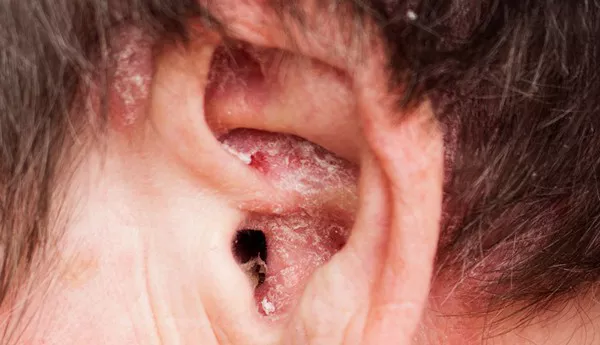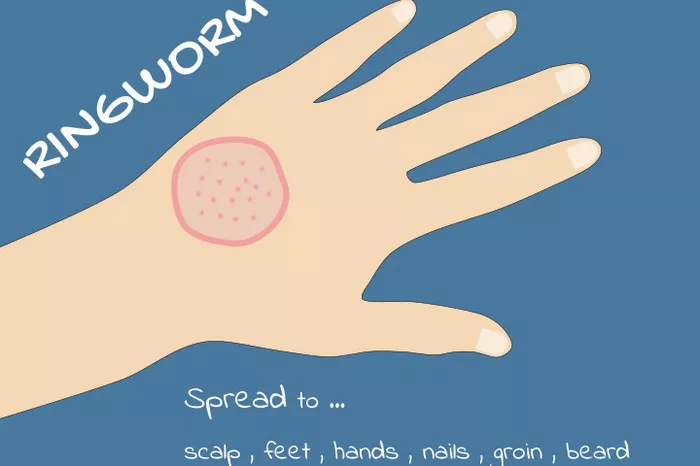Eczema, a chronic skin condition characterized by inflammation, itching, and redness, can affect various parts of the body, including the ears. While eczema in the ears may not be as common as other types of eczema, it can still cause discomfort and affect one’s quality of life. Understanding the causes behind this condition is crucial for effective management and treatment.
What is Eczema?
Before delving into the causes of eczema in the ears, it’s important to understand what eczema is. Eczema, also known as atopic dermatitis, is a condition that leads to dry, itchy, and inflamed skin. It often appears in patches on different parts of the body and can vary in severity from mild to severe. While the exact cause of eczema remains unknown, it is believed to result from a combination of genetic and environmental factors.
Eczema in the Ears: What Causes It?
Eczema in the ears, also known as aural eczematoid dermatitis, can be triggered by various factors. Understanding these triggers is essential for managing the condition effectively. Here are some common causes of eczema in the ears:
1. Genetic Predisposition:
Genetics play a significant role in the development of eczema. Individuals with a family history of eczema or other allergic conditions are more likely to develop eczema themselves. Genetic factors can influence how the skin barrier functions and how the immune system responds to triggers, increasing the risk of eczema in the ears and other areas.
2. Environmental Factors:
Environmental factors such as allergens, irritants, and climate can trigger or exacerbate eczema symptoms. Irritants like soaps, shampoos, hair dyes, and perfumes that come into contact with the ears can irritate the skin and lead to eczema flare-ups. Similarly, exposure to allergens such as pollen, dust mites, pet dander, and mold can trigger an immune response, worsening eczema symptoms.
3. Moisture and Humidity Levels:
Changes in moisture and humidity levels can impact the skin’s hydration levels and exacerbate eczema symptoms. Dry air, especially during the winter months when indoor heating is used, can lead to dry, flaky skin in the ears, making them more susceptible to eczema flare-ups. Conversely, excessive sweating due to hot and humid weather can also trigger eczema in some individuals.
4. Microbial Infections:
Microbial infections, such as bacterial or fungal infections, can contribute to eczema in the ears. Scratching the ears due to itching can create small breaks in the skin, providing an entry point for bacteria and fungi to invade and cause infection. These infections can further exacerbate inflammation and itching, leading to a worsening of eczema symptoms.
5. Stress and Emotional Factors:
Stress and emotional factors can have a significant impact on eczema symptoms. Stress can weaken the immune system and trigger inflammatory responses in the body, potentially worsening eczema flare-ups. Additionally, feelings of anxiety, depression, or frustration associated with living with eczema can exacerbate itching and discomfort, leading to a vicious cycle of symptoms.
Managing Eczema in the Ears
While the exact cause of eczema in the ears may vary from person to person, effectively managing the condition often involves a combination of preventive measures and treatment options. Here are some strategies for managing eczema in the ears:
1. Avoid Triggers: Identify and avoid potential triggers that exacerbate eczema symptoms, such as allergens, irritants, and stressful situations.
2. Maintain Proper Ear Hygiene: Practice good ear hygiene by avoiding excessive cleaning or scratching of the ears, as this can irritate the skin and worsen eczema symptoms.
3. Use Gentle Skincare Products: Choose skincare products, including soaps, shampoos, and moisturizers, that are fragrance-free, hypoallergenic, and suitable for sensitive skin.
4. Keep the Skin Moisturized: Moisturize the skin regularly, especially after bathing or swimming, to help maintain the skin’s natural barrier and prevent dryness.
5. Manage Stress: Incorporate stress-relief techniques such as meditation, deep breathing exercises, or yoga into your daily routine to help manage stress and reduce the risk of eczema flare-ups.
6. Seek Medical Advice: Consult a dermatologist or healthcare professional for proper diagnosis and treatment if eczema symptoms persist or worsen despite self-care measures.
Conclusion
Eczema in the ears can be a challenging condition to manage, but understanding its causes and triggers is essential for effective treatment and prevention. By identifying and avoiding potential triggers, practicing good ear hygiene, and seeking appropriate medical care, individuals can better manage their eczema symptoms and improve their quality of life. With proper management and care, it is possible to minimize the impact of eczema in the ears and achieve relief from its uncomfortable symptoms.

























